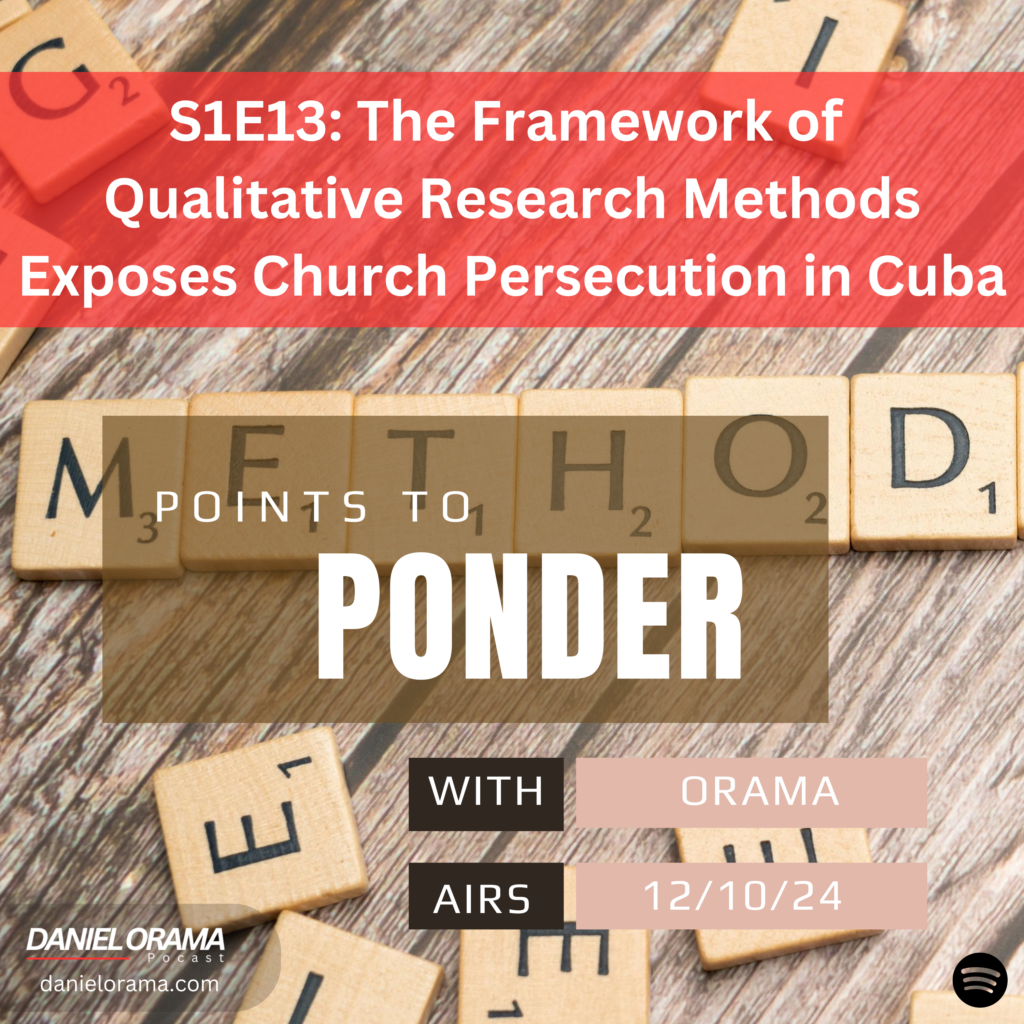The Phenomenological Approach
The phenomenological research approach is a construct of examination stemming from the philosophical and psychological schools of thought in which researchers share the experiences of individuals involved by sharing living experiences that determine the phenomenon in question. The philosophical approach is rooted in the historical challenges faced by the Christian church, particularly the psychological impact of Fidel Castro’s Communist Revolution. In the case of Fidel Castro’s Communist Revolution, the entire country experienced this phenomenon either by persecution, acceptance, or escaping dictatorship under the assimilation of Communism, Marxism, Leninism, and Socialism.
Fidel Castro employed the philosophical approach via Marx-Lenin ideology through education, which required a few decades to assimilate the population into the new change in the country. In quoting former United States president Ronald Reagan, “Freedom is never more than one generation away from extinction.”
[1] It took the Communist regime of Cuba two decades to completely turn the tide of not only the general population but that of the Christian church infiltrated with the philosophical thought of Marx-Lenin Communist ideology.
In the case of this phenomenological approach, the findings of an entire country relied on interviews with Fidel Castro, works of Cuban theologians, imprisoned pastors, and eyewitnesses who were directly affected. The approach of this study includes the root of each building block that Castro’s Communist Government implemented throughout its history. The building blocks were Atheism, Communism, Socialism, Marxism-Leninism, past historical figures, and theological conformity to the new society. Kamala Harris loves to say a new way forward, which is the old ways of communism repackaged. The qualitative research approach leads to another part called the Constructivist worldview in this study’s revelation based on the eyewitness accounts of the people of Cuba, both secular and religious.
Individuals, or you and I, seek to understand and actively participate in the world around us, according to social constructivists. Researchers from supportive interpretations of their experiences focused on specific objects or phenomena based on researchers’ observations of the people of Cuba. These varied and complex elucidations, meaning clarification, lead scholars to explore the diversity and richness of perspectives instead of simplifying them into narrow categories or concepts. John W. Creswell states, “The goal of the research is to rely as much as possible on the participants’ views of the situation being studied.”
[2] Their findings inform you and me to understand the Communist takeover that the Christian church in Cuba was forced to comply with or face severe consequences.
The Encapsulation of Beliefs
Epistemological, meaning relating to the theory of knowledge, frameworks are theoretical models encapsulating beliefs and principles regarding how different academic disciplines approach knowledge acquisition. Frameworks reveal factors, including the procedure used to investigate a particular subject area, the evidence needed to support claims, and the relevance and impact of knowledge produced. Ultimately, epistemological frameworks shape scholars’ thinking and pursuit of knowledge in their respective fields. The frameworks help the researcher, you and I, discern between knowledge of confirmed historical facts and direct opinion. Okay, now hold on a moment. Many people will not understand these frameworks or spend the time studying them. I agree, which is why we who share what we discover through investigative means must be truthful in our findings and share it as is and not enhance or exaggerate for the sake of self-glorification, which, by the way, is sin.
The educational programs implemented by Cuba’s Communist regime under Castro were rooted in the principles of Communism, Socialism, and Marxist-Leninist ideology. I am sharing a fact as is and not theorizing because they admitted it and implemented it. This approach emphasizes that individuals construct knowledge by reflecting on their experiences and interactions with their social and cultural environment. Again, the experiences are not to be self-glorified for the means of show ratings by exaggerating what transpired. The educational system in Cuba was designed to exert control over the environment and shape society by establishing a foundational set of academic principles via assimilation. Boyle states, “Marxism-Leninism as the official ideology of the state.”
[3] Consequently, knowledge was viewed as a fluid and dynamic process based on how individuals interpreted and engaged with the world rather than as a fixed or objective entity.
Aggressive Anti-Christian Persecution
During the years 1965-1966, the Cuban Government became aggressive in its anti-religious persecution of Protestant ministers and other religious leaders taken to labor camps. Author Louis Segesvary states that they sent them to “Eastern Camagüey province, along with others considered social scum.”
[4] The Communist takeover gave Fidel complete control over mass media, restricting the gospel over Cuban airwaves. In contrast, Religious organizations in Cuba would face significant obstacles due to the Government’s firm ownership and control. The Cuban Government’s power was so vast that when I visited Cuba in 2003, my relatives were not allowed in my hotel room because they were not allowed to watch or hear outside news that would place a well-deserved stain on the Cuban Government. Stains are the regime’s sins, and there is only one way to remove the stain from the individual: by receiving the revelation and redemption in Jesus Christ. We are cleansed from all unrighteousness by the blood of the Lamb.
[1] National Archives, Ronald Reagan Presidential Library and Museum, January 5, 1967: Inaugural
Address (Public Ceremony).
[2] John W. Creswell and J. David Creswell, J. David,
Research Design: Qualitative, Quantitative, and Mixed Methods Approaches 5th Edition. (Thousand Oaks, CA: SAGE Publications, 2018), 7-8.
[3] Kevin Boyle and Juliet Sheen,
Freedom of Religion and Belief, 125.
[4] Louis Segesvary, “In a Place Without a Soul,” 13.


